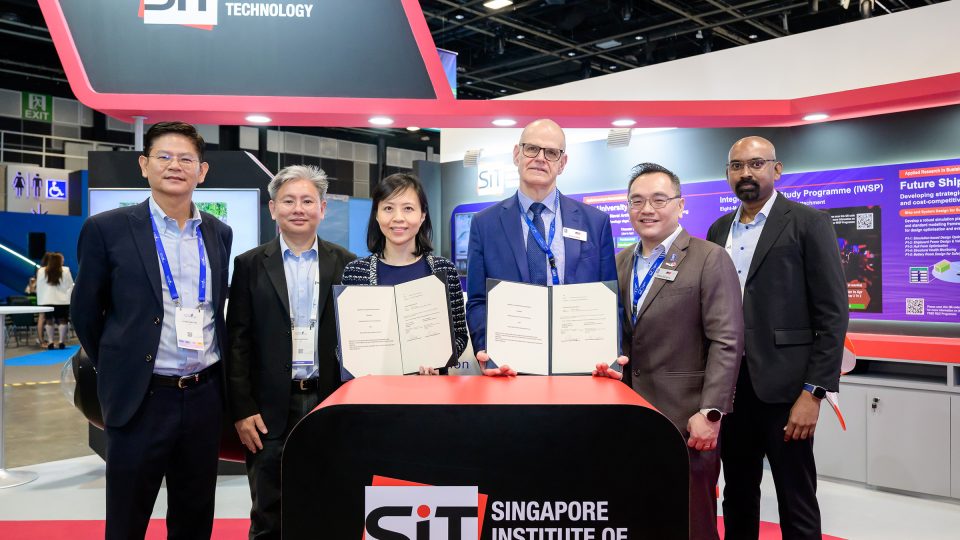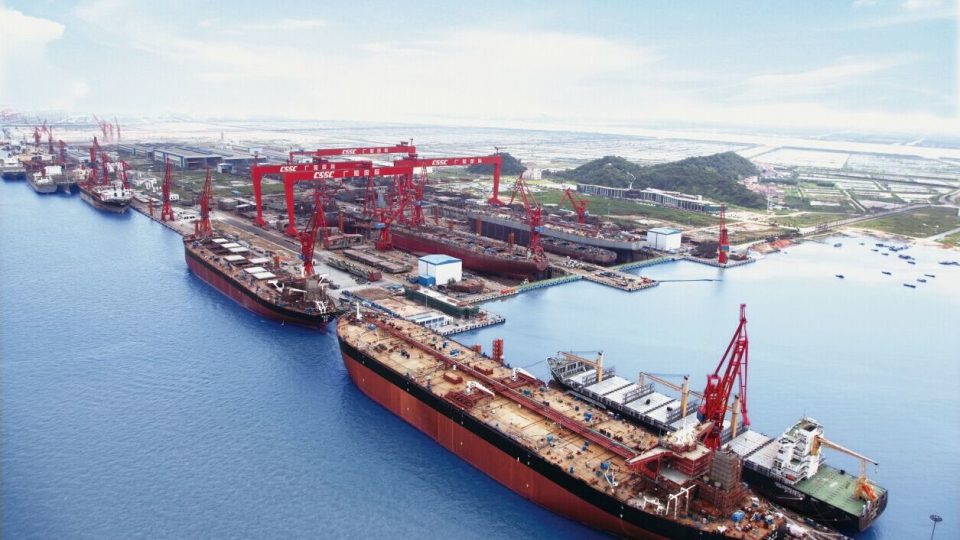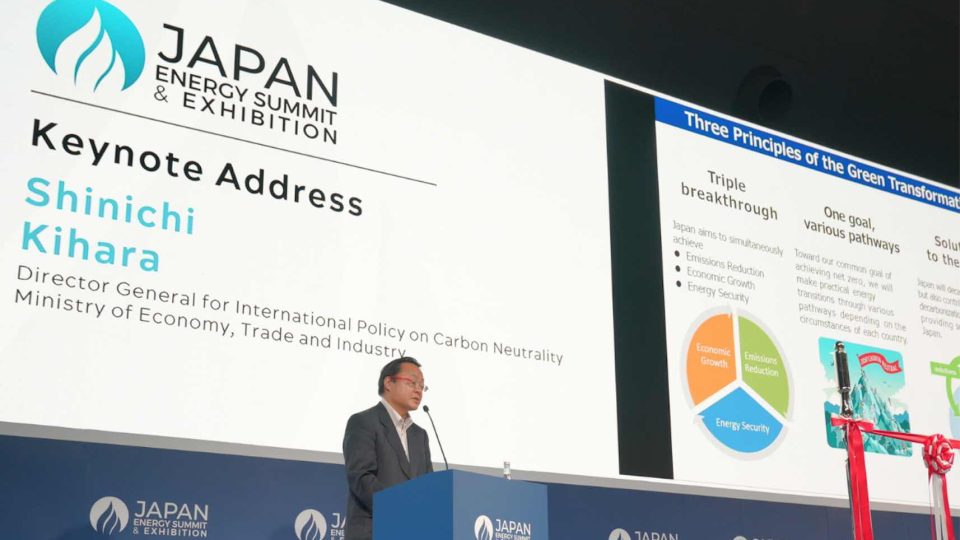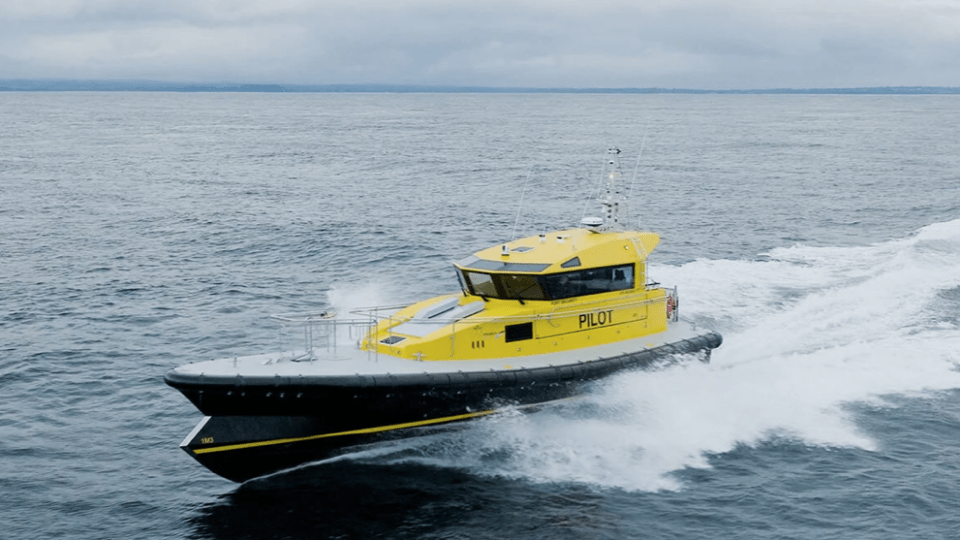mtu IMO III and hybrid propulsion systems soon available for yachts (with Ferretti at the forefront)
Rolls-Royce Power Systems is working for the yachts of the future. mtu-branded IMO III Series 2000 propulsion systems will be available for series yachts as of 2022, while the first hybrid solutions are supposed to be launched in 2023. An agreement for the supply of the new systems was signed at the Cannes Yachting Festival.
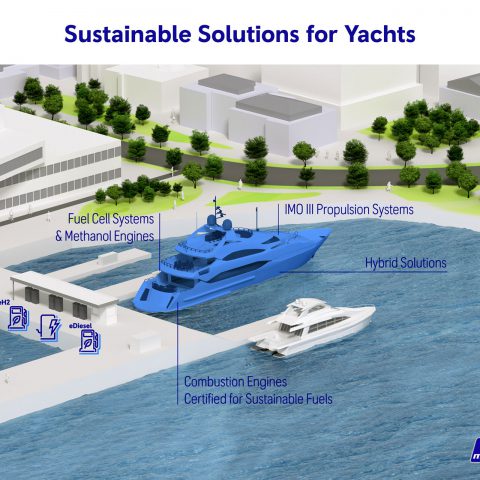
Rolls-Royce Power Systems is working for the yachts of the future. mtu-branded IMO III Series 2000 propulsion systems will be available for series yachts as of 2022, while the first hybrid solutions are supposed to be launched in 2023. We might say these are some first important steps of the comprehensive roadmap to carbon neutrality outlined by Rolls-Royce Power Systems back in July.
A new generation of mtu Series 16V2000M97L engines will be available with an integrated exhaust aftertreatment system from April 2022. This will enable production yachts to sail in particularly protected areas, for example in ECA zones such as the North American coast, the Caribbean and the North and Baltic Seas. The systems with SCR units significantly reduce particulate and NOx emissions. The IMO III propulsion system will be delivered for the first time this autumn and tested in a production yacht from the beginning of 2022. Further engine variants of the mtu Series 2000 will gradually become available for IMO III operation.
Additionally, 2023 should be the year of the first Rolls-Royce hybrid solutions for production yachts with mtu Series 2000 engines and variable electric power, which will cover a power range of approximately 1,000 to 1,939 kilowatts per powertrain. In addition to the engines, the system also includes electric motors, gearboxes, batteries, control and monitoring systems and other electronic components.
Ferretti and RRPS: an agreement for mtu IMO III and hybrid systems
Quite an important agreement has been reached between Rolls-Royce Power Systems and the Italian shipyard Ferretti Group in Cannes at the Yachting Festival. Alberto Galassi, CEO of Ferretti Group and Andreas Schell, CEO from Rolls-Royce Group’s Power Systems Division, signed the agreement for the supply of IMO III and hybrid propulsion system addressed to the new yachts manufactured by Ferretti.
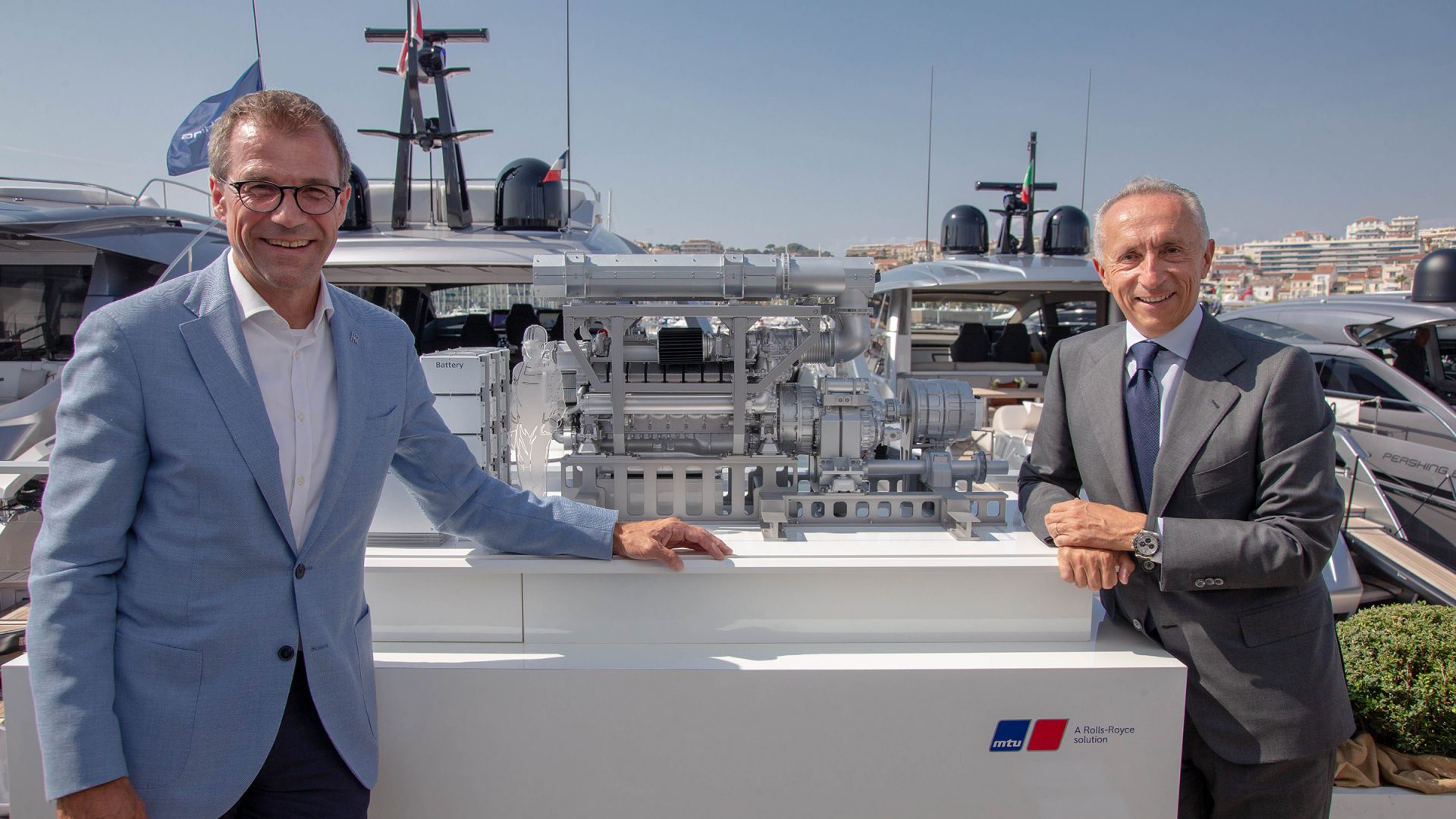
In details, Rolls-Royce will supply a fully integrated hybrid mtu propulsion solution with an output of approximately 1,432 kilowatts per powertrain, comprising two 12-cylinder Series 2000 M97 diesel engines, electric drive modules, gearboxes, batteries, control and monitoring systems, other electronic components and a SCR for compliance with IMO III regulations. «We are very pleased to bring new high-tech solutions to the market with our long-standing partner Ferretti Group», said Andreas Schell.
For yachts, a hybrid system brings high performance and significant gains in terms of comfort – with quiet, low-vibration and low-emission cruising. A hybridized propulsion system is a response to stricter emission. A custom-line 106 yacht from Ferretti will be fitted with an mtu propulsion system as a pilot installation later this year that is IMO-III compliant, allowing it to sail in specially protected areas.
If we want to continue to grow steadily as a market leader, it is essential to address the economic, environmental and social impacts produced by our activities and to mitigate our footprint
Alberto Galassi, CEO of Ferretti Group
Alternative fuels from 2023
The yacht engines of the mtu 2000 and 4000 Series will be approved for sustainable EN 15940 fuels such as e-diesel and second-generation biofuels from 2023, enabling climate-neutral cruising. HVO (Hydrotreated Vegetable Oil), for example, is a biofuel that can be produced from waste in a CO2-neutral way, with low emissions and clean and efficient combustion.
Rolls-Royce Power Systems engineers are working on other new technologies such as fuel cell systems and methanol engines. At its Yacht Competence Centre in La Spezia, the company offers shipyards technical support in the development and integration of new propulsion systems.




